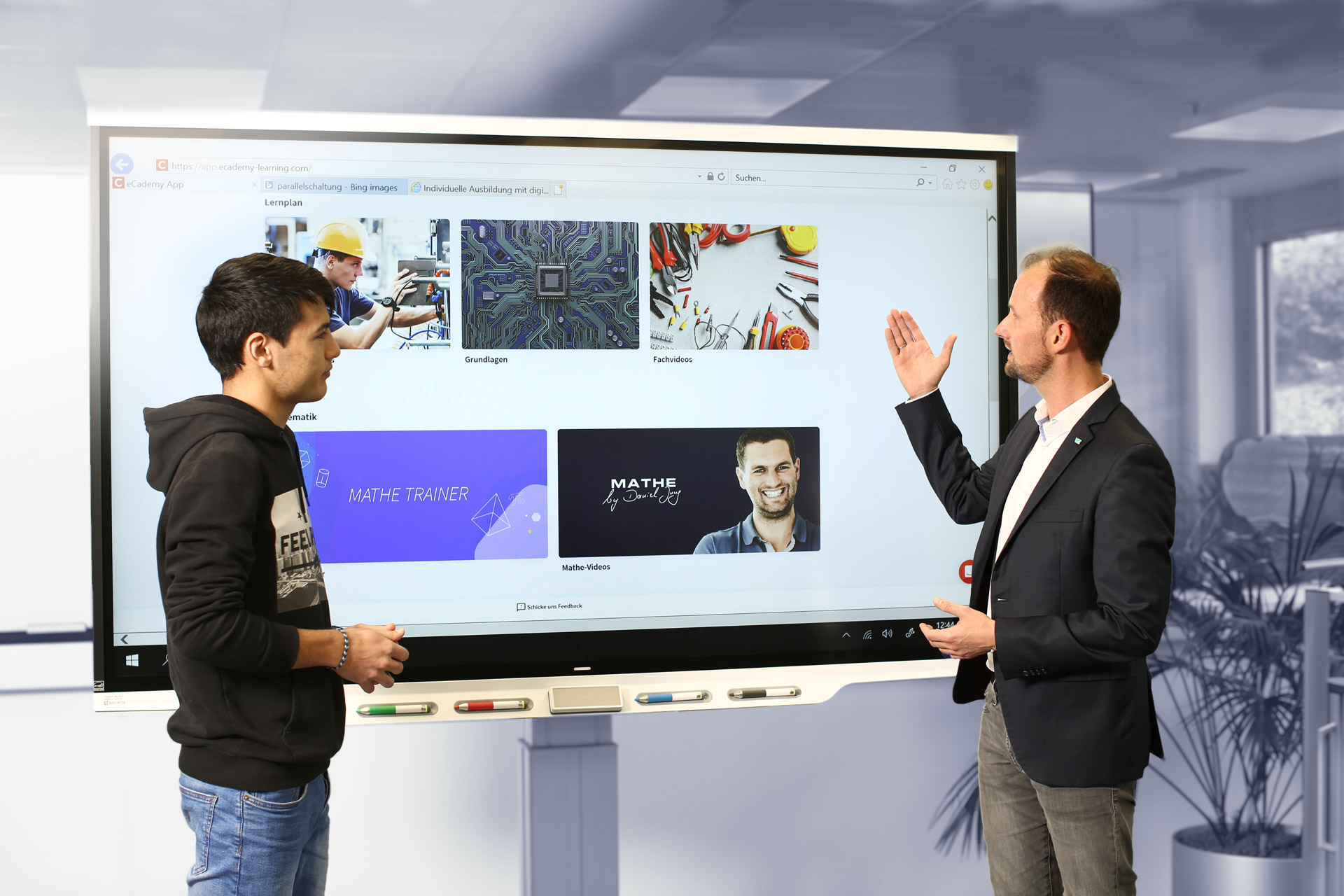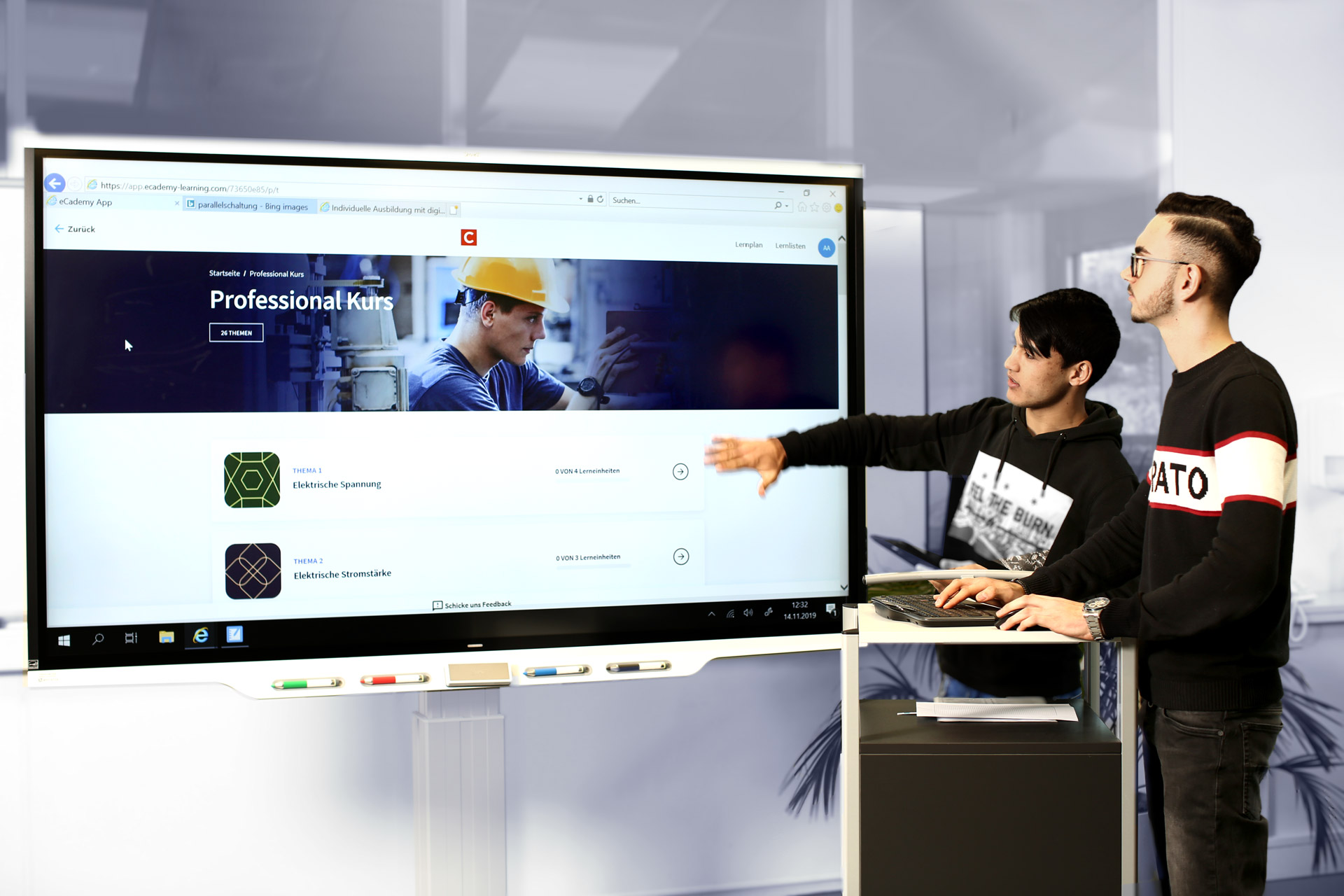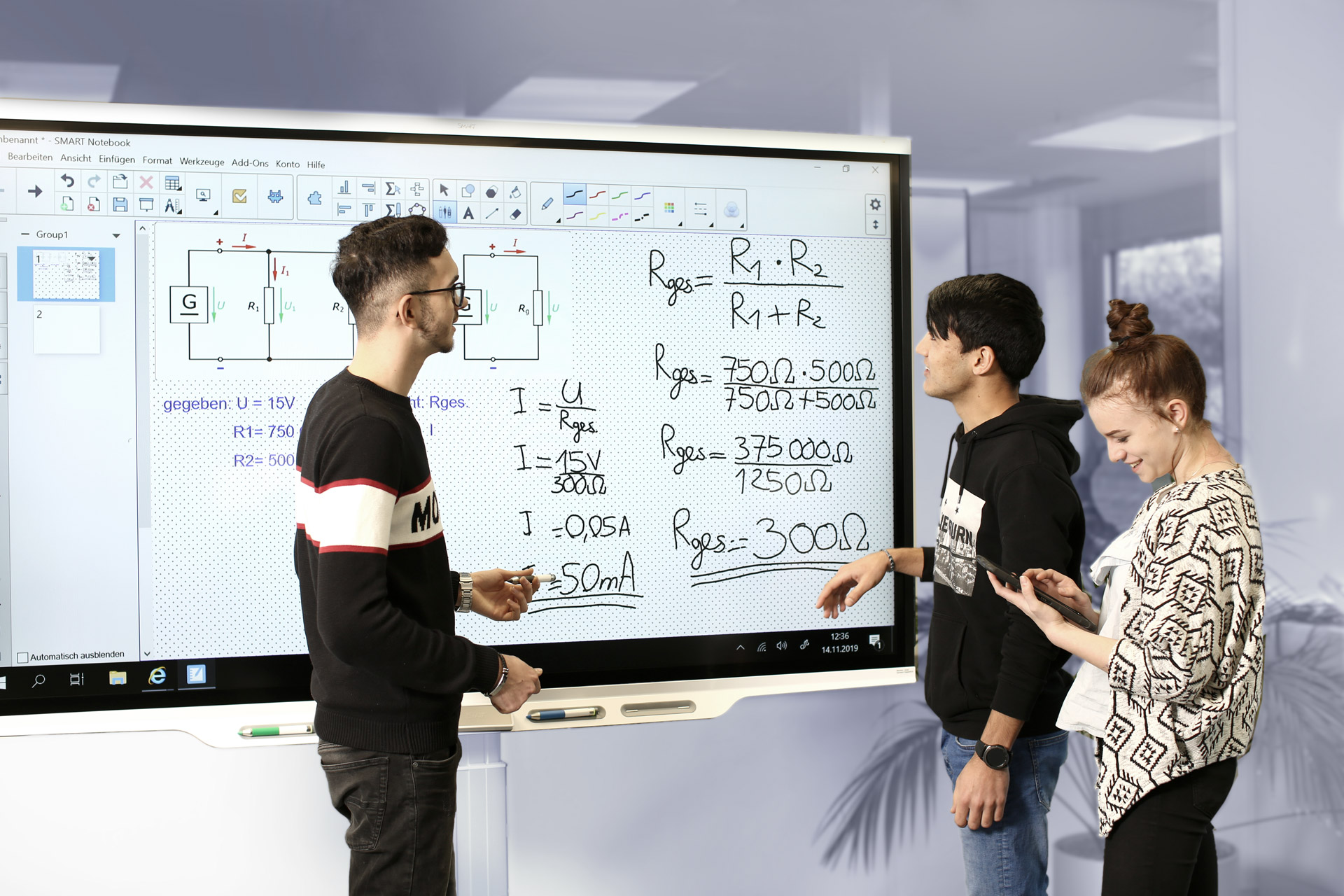March 18, 2020
Digital Skills Are Essential
Ongoing technological and digital change has a major impact on the focus of corporate objectives, which is why Pepperl+Fuchs has developed a “digital agenda.” The digital skills of employees also play an important role here. In the future, these skills will be a key factor in determining a company’s success.

To help its employees develop their digital and technological expertise, Pepperl+Fuchs has created a digital learning platform for all of its employees worldwide. However, there is also a clear focus on the future professional requirements of junior employees. Accordingly, the training area at the company headquarters in Mannheim has been completely modernized and geared toward digital learning.
'Globalization and technological change place enormous demands on us and require considerable resources,' says Dr. Gunther Kegel, Chairman of the Executive Board of Pepperl+Fuchs, outlining the initial situation. To deal with the challenges of the future, Pepperl+Fuchs is pursuing its own digitalization strategy, which covers all areas of the company. 'In each department, we are investigating the ways digitalization can improve efficiency, from intelligent products to smart production and business processes,' explains Kegel. But the digital skills of employees and junior staff are also on the digital agenda.
Technological Change Requires Digital Skills
Continuous digitalization in all aspects of life through smartphones, smart home technologies, and autonomous driving has also spread to the manufacturing industry. The development of new IoT technologies is leading to the continuous expansion of business units. 'Three major areas are in increasing demand today. These are mobile computing, two- and three-dimensional measurement technology, and data migration. Smartphones and tablets have already made their way into factories and plants. Two- and three-dimensional scanning technology and 3-D cameras are capturing increasingly complex scenarios, which software turns into systems and solutions. Data migration is also crucial,' Kegel concludes. Already available data can create transparent production processes for plant operators through new web-based applications and cloud solutions, offering the potential for considerable efficiency in the future.

This is why the most important goal of the Pepperl+Fuchs Group beyond growing the company's core business is the development of digital technologies. This requires employees who keep up with technological and digital change and incorporate it into their daily work. "Simultaneously attracting young talent and developing the digital competence of employees in a meaningful way is the most important challenge. Helping to shape this process is also my personal goal," explains Kegel.
Geared toward Digital Learning
To deal with digital change and future professional requirements, the training area at the Pepperl+Fuchs company headquarters in Mannheim has been completely modernized and geared toward digital learning. 'A total of 2422 working hours were invested in the digitalization and modernization of the training area. The result was a perfect learning environment with state-of-the-art technical equipment,' reports Patricia Goebel, Training Manager at the company headquarters in Mannheim, with pride. Attracting qualified young people to an apprenticeship or to a part-time work/study program is crucial for companies such as Pepperl+Fuchs. In addition to the actual learning and course content, the learning environment and the availability of cutting-edge technical equipment are important for junior employees.

As the first digitalization measure, the training workshop received a new, multimedia learning station. The basics of electrical installation and equipment testing can be learned independently on this computer-based training system, both in theory and practice. Learning progress is not only checked with tests and troubleshooting on experimental boards, but it is also documented electronically. The system's multimedia learning environment significantly boosts the motivation and learning success of apprentices.
Multimedia learning station: The computer-based training system for electrical installation technology allows apprentices and students to independently learn the basics of electrical installation and equipment testing.
The test lab is complemented by a large smartboard, which stores the learning content in files. Students and apprentices can access these files at any time to edit, solve, and save tasks directly on the smartboard. In addition to these changes, modern, height-adjustable tables, which all feature laptop network connections, have replaced the lab tables used previously. New learning platforms with all available information, plans, and work instructions enable independent learning at the students’ workspaces. Practical and theoretical learning content is now perfectly combined—microcontroller boards can be programmed directly and tested on a self-developed and self-soldered LED matrix. An active USB hub allows data exchange between the laptop and the microcontroller.
"Overall, digitalization creates multimedia learning alternatives that make possible a more individualized and more efficient way of learning," says Goebel happily, along with her training team. "The apprentices themselves are also extremely enthusiastic about the new technical possibilities. Having the perfect learning environment puts everyone in high spirits."
Digital Skills as a Company Asset
It is not only junior employees who benefit from e-learning. 'In the future, digitalization will present a new and different set of requirements for all employees,' suggests Kegel. To help its employees develop their technological and digital expertise, Pepperl+Fuchs has created a digital learning platform for all of its employees worldwide. This platform builds on the company's own digitalization strategy and is intended to prepare each employee for the new challenges posed by digitalization and technological change, and to train them individually in essential subject areas.
'Digitalization will create more jobs on average than those lost through automated processes. But a skills gap will emerge,' predicts Kegel. 'I am convinced that it is also up to us, the employer, to help close this gap. We don't just feel morally obligated, but from a business perspective it is also smart for employees with years of experience and a great deal of expertise to use their knowledge in new skills and new challenges. That is why we have set up the digital learning platform,' explains Kegel.

Similar to a distance learning course, each area of the company has its own customized learning content consisting of both mandatory and advanced learning modules. A particularly impressive feature is that the digital curriculum comprises approximately 42 hours of learning content. More than half of the content was produced by Pepperl+Fuchs employees themselves under professional guidance and covers subjects including industrial communication and safety integrity. "The e-learning platform contains a great deal of information. It also shows that, when it comes to digitalization, technology and business management models increasingly go hand-in-hand. Take pay-per-use models, for example. That is why there is no traditional separation between commercial and technical topics. Everyone can continue their development individually and delve deeper into digitalization and Industry 4.0. The digital learning platform will allow our employees to make an important contribution to the company in the future," concludes Kegel.








